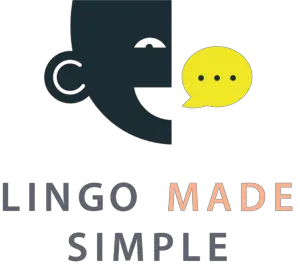“When you join a new team, you’re coming on board in that situation. The entire staff might welcome you aboard the new venture when you arrive.”
Would it be better to say it this way instead?
“When you join a new team, you’re coming aboard in that situation. The entire staff might welcome you on board the new venture when you arrive.”
The difference between “on board” and “aboard” when welcoming someone is negligible. That doesn’t mean there are other instances where you would want to choose one option over the other.
Welcome On Board vs. Welcome Aboard
There is no difference between “welcome on board” or “welcome aboard” in the English language. It refers to the same process of transition. Most people would use the first expression when boarding a boat, train, or plane, while the second is used for joining a team.
The phrases “welcome on board” and “welcome aboard” come from the boarding process for vessels in the early days of ship-going humanity. Since those seafarers didn’t have any fancy technologies to fabricate steps, they would use simple boards and planks to get onto a vessel.
Although the “on board” version is usually used for boarding planes, trains, and boats, sailors ask permission to “come aboard” when it is their first time on a vessel where they serve. Depending on the rules and situation, it might be required to ask that question (with a potential salute) every time one comes from the shore to the sea.
That’s why the two phrases are often used interchangeably.
The request is more of an etiquette effort than anything else, but a few practical factors are there to consider when boarding a small boat.
When you request to come aboard a boat, several factors play into that moment.
- Is the deck wet or dry? If it is wet, the footing will be slippery. If you have shoes on, you’ll leave behind unsightly footprints. Should you ever find yourself in this situation, try to bring a towel along to take care of the issue.
- How firm is the footing? Small vessels can rock when you step on the edge for boarding. That’s the reason why you would request to come aboard instead of doing it alone. It prepares everyone for the experience.
- Where can you step? Most boats have a specific place for your boarding. It’s usually somewhere near the rear of the hull, but it varies based on the size and style of vessel in question. When you request permission to board, you can look for the best spots to put your feet safely.
Why Would Someone Want to Say, “Welcome Aboard?”
When you request permission to come on board a boat, you’re essentially knocking on that person’s front door. The goal is to get an invitation to join everyone else on the vessel already. In that situation, you might hear “Welcome aboard!” because you’re joining a team of people already having a great time.
You can also hear “welcome aboard” a lot when you start a new job or join a professional group. This phrasing occurs because you’re also entering a team experience.
Some people still say “welcome on board” in those settings because of how the English language uses the expression interchangeably.
That’s why the difference between the two statements is negligible. Ultimately, you can say what you prefer.
Onboarding Is a Different Process
When you look at aboard and “on board,” it is crucial to separate the latter from the word “onboard.”
Onboarding is an adjective or a verb. It means that you’re making something available or following a specific training process. Here is an example of “onboarding” as an action.
“The onboarding process at my new job was fast and efficient. Some people say it takes six months to get good at a job, but I did it in 30 days.”
As you can see, it wouldn’t be appropriate to substitute “aboard” or “on board” in that same sentence framework.
When “onboard” is used as an adjective, it often refers to the item’s specific location or situation.
“The onboard computer system on the aircraft includes a black box that records every action taken if an emergency occurs.”
The adjective “onboard” can also refer to the fact that something was included with a gift or purchase.
“Sam enjoys the onboard stereo system that comes with his new Corvette.”
If you use the word “aboard,” it’s typically used more figuratively. It can stand alone as a preposition or an adverb. Onboard is not used in this fashion unless someone turns the expression into an idiom.
What makes things more confusing is that when you separate “on board,” it can become “on-board” in some situations.
if you see “on-board” used in English, it is typically referencing the single-word option. Some people might misuse the hyphen when writing, which means the reader would need to spot the differences.
Do I Need to Know the Difference Between “Welcome On Board” and “Welcome Aboard?”
When someone says, “welcome on board” or “welcome aboard,” the best way to respond would be to offer a simple “thank you.” It might not even be necessary to acknowledge the comment unless it’s required as you board a vessel, train, or airplane.
If you are in a corporate situation and hear one of these phrases, it would be appropriate to follow up with a reason behind your thanks.
You could say, “Thank you for the opportunity. I’m proud to be here and working with everyone.”
Another option might be to say, “It’s an honor to have you invite me to join your team. I’ll work hard for you each day.”
The reason why thank yous are sometimes expected is that getting welcomed on board is a privilege. The invitation doesn’t get sent to everyone, which means gratefulness and respect are appropriate.
If you’re going places without offering this gratitude, you might find someone trying to kick you off the boat.


